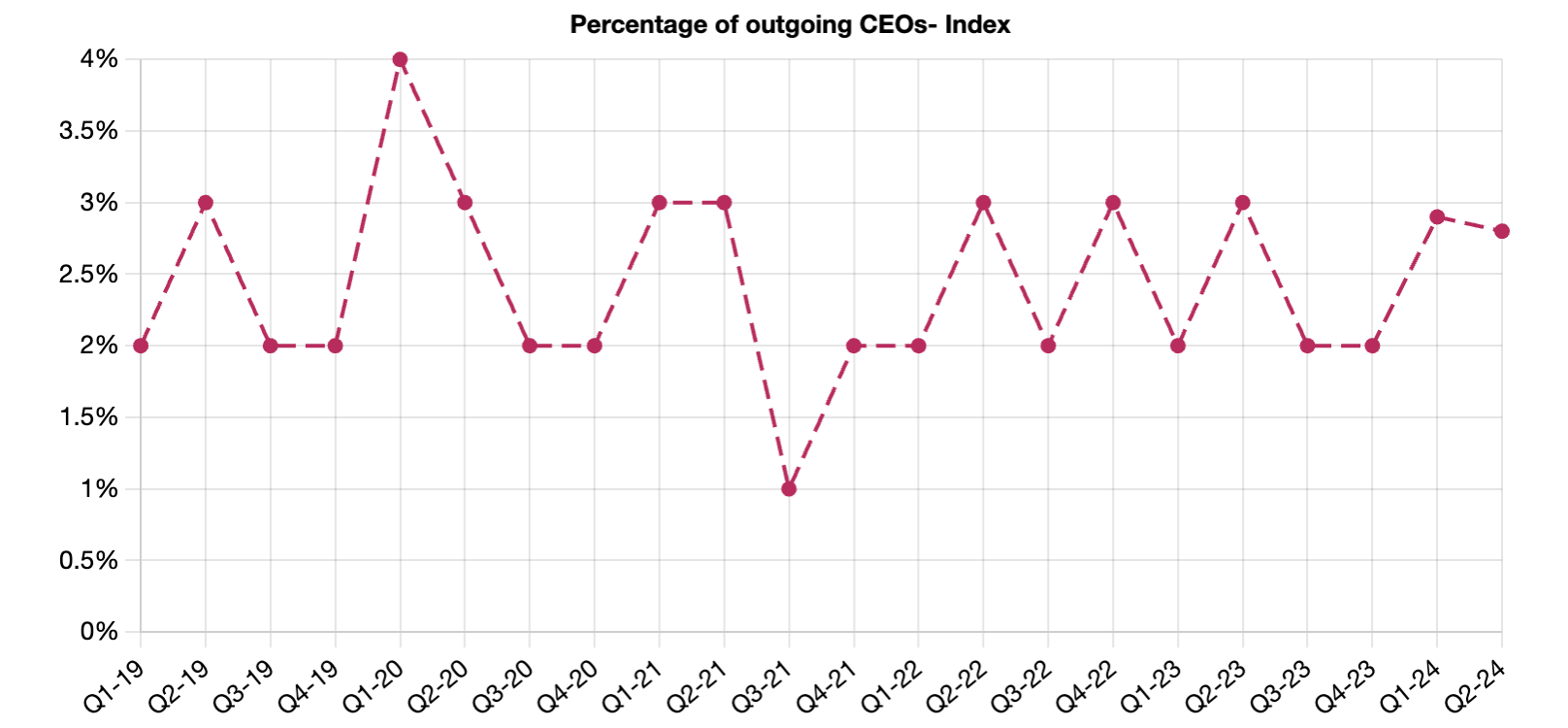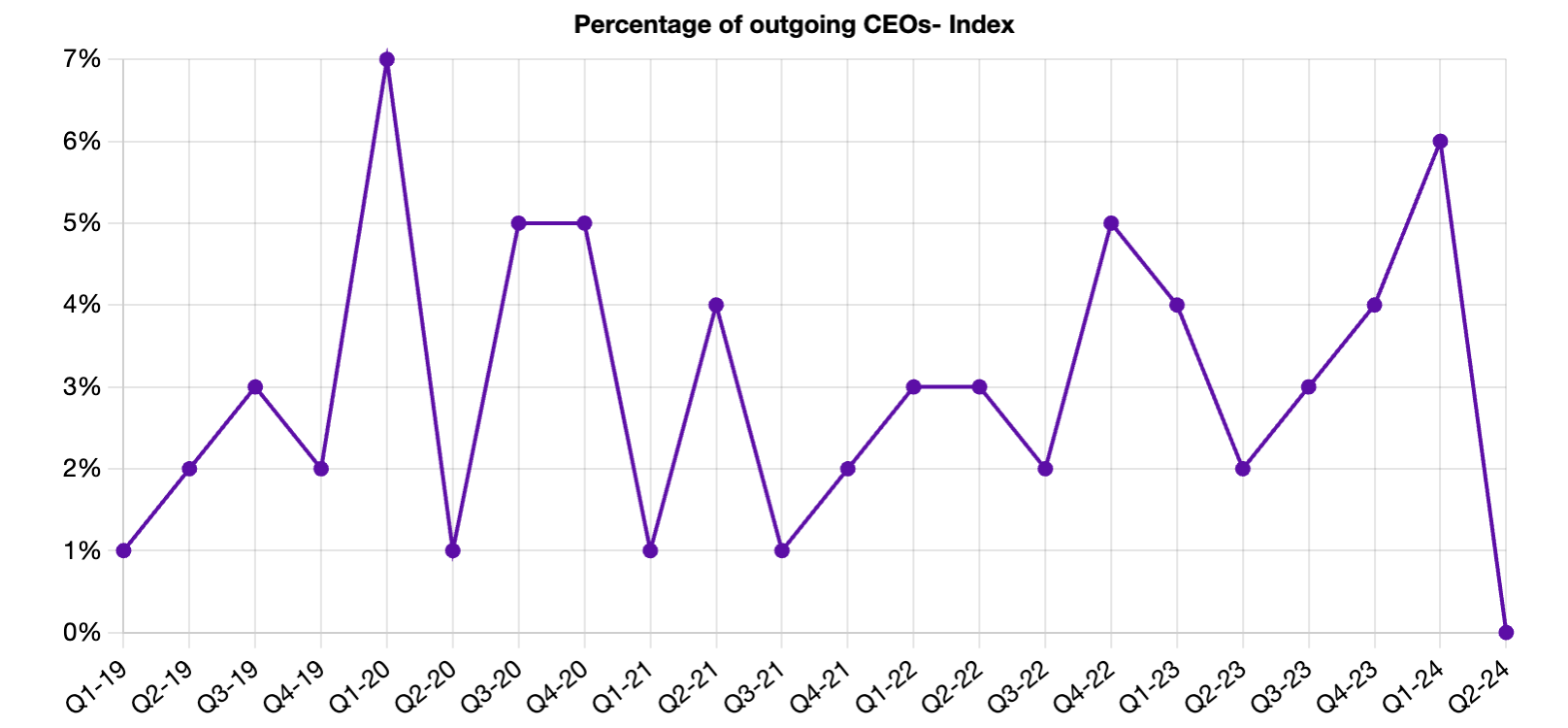
FTSE 100 sees no new CEO departures, appointments amid political upheaval

In the second quarter of 2024, CEO departures reached their lowest level for Q2 since the Global CEO Turnover Index began tracking in 2018, according to the Russell Reynolds Associates (RRA).
Only 51 CEOs left their roles in the second quarter this year, according to the index, slightly lower than the 52 CEOs who departed in the previous quarter.
Planned CEO successions accounted for 23% of all outgoing CEOs in the second quarter, more than double the six-year average of 11%.
CEO dismissals, on the other hand, were down by more than half the quarterly average to just 12% globally this quarter, according to the report.

Source: Russell Reynolds Associates' Global CEO Turnover Index
When it comes to CEO appointments, 78% of them were internal promotions.
"We are starting to see the benefits of a long-term cultural shift towards succession planning and the promotion of internal candidates," said Emma Combe, Head of UK Board Practice at RRA, in a statement.
"With the right preparation, internal candidates regularly outperform even experienced external candidates thanks to their deep institutional knowledge and strong cultural ties to their organisation."
As CEO departures dropped to record-low levels in the second quarter, the RRA also found that there were no CEO departures or appointments in the FTSE 100.

Source: Russell Reynolds Associates' Global CEO Turnover Index
The RRA attributed the lack of CEO movement to the boards wanting stability amid expected political disruptions across Europe.
"We are seeing boards reach for consistency in leadership to steer them through these transitions," said Laura Sanderson Co-Head of Europe, Middle East & India at RRA, in a statement.
"With sustainability policy, taxation and growth becoming highly politicised issues, the ability of leadership teams to pivot quickly to the unexpected will be key."
Meanwhile, the report also found that there were five women appointed as CEOs out of 51 global appointments made in the second quarter.
The percentage of women in CEO positions also grew by 7.7% globally from the first quarter of 2018 to the second quarter of 2024.
"To achieve true gender balance at the top, we need to create systemic changes to how succession is planned, managed, and executed," the RRA said in its report. "The scope of CEO candidacy needs to be widened and organisations need to take the preparation of women for CEO roles far more seriously—investing more in their women leaders, increasing pipelines, and addressing bias."